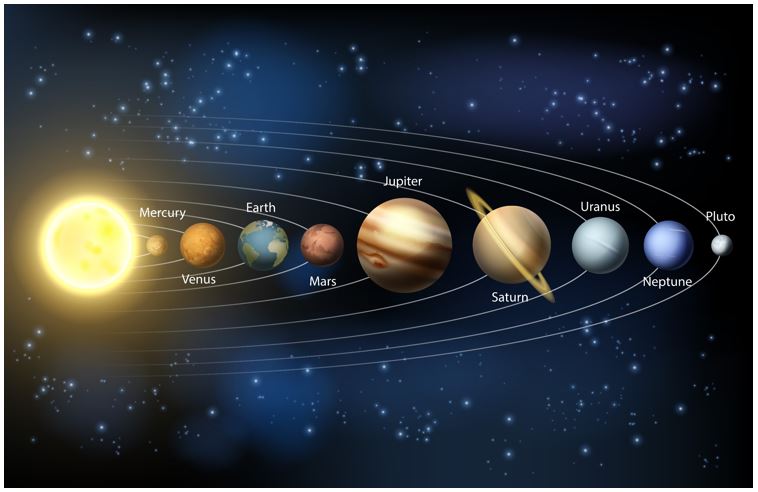This month we celebrate two important events in science; World Science Day and World Space Week.
On World Science Day, we’ll consider the advances made in recent years in science and think about what scientists may succeed at next. We’ll also look at how science has helped the human race as well as helped to damage it.
World Space Week encourages us to look beyond our sky and consider life in space. Eventually, it’s likely that we’ll have to leave our planet due to our destruction of it, and move to another far away. What should we be looking for and what problems might we face there?
Activity One: What Will Science Be Doing Next?
Suitable for: Year 3 to Year 6
Learning Focus:
- Be able to say what achievements science has made recently
- Hypothesise what science may be able to achieve next
Use the accompanying resource sheet: Scientific Discoveries of 2015, as a discussion point about recent discoveries by scientists.
Read out each of the discoveries and explain their significance in a little more detail with help, where appropriate from the class. Now, in groups or pairs, give them a copy of the list, and ask them to group them according to which aspect of science they are and order them in what they think is important and to think about why they made that decision.
When they have finished ordering them, bring the class together and collate the results. See if they agree with each other and ask for their justification of their decisions.
Now, using the categories that the discoveries have been grouped under, ask the pupils to work in pairs to think about what science might discover next in that category. Ask them to say how close they think scientists are to that discovery and what they might need to reach it.
Activity Two: How Does Science Help Humankind?
Suitable for: Year 2 to Year 6
Learning Focus:
- Differentiate between science that helps the human race and that which has the potential to destroy it
- Be able to explain their choice of the three greatest achievements in science for humans
In this activity, the pupils will consider a list of scientific discoveries and decide whether they have helped the human race or worked against it. Use the accompanying resource sheet: Good Science Bad Science and ask them to work in pairs to group them. Are there some that could go in both categories? Does every good discovery have a bad side?
Now ask them to say what they think is the best discovery science has made. Can they give you a top three and justify why?
Activity One: Using the NASA Website
Suitable for: Year 2 to Year 6
Learning Focus:
- To be able to use a website to follow a story
- To be able to use information to back up on opinion
The website www.nasa.gov, is the world’s most popular website for space related topics. It covers all aspects of space in great detail for adults and scientists as well as in simpler form for young people at NASA Students and NASA Kids:
http://www.nasa.gov/audience/forkids/kidsclub/flash/index.html#.Va4PNvmqqko
For KS2, NASA Students is more appropriate:
http://www.nasa.gov/audience/forstudents/index.html
The beauty of the website is its comprehensiveness and also its huge bank of activities, many of which get pupils to use evidence to make their own hypotheses. It’s also good for following the latest NASA missions, showing them first hand, photographs and images from distant parts of our solar system and out into the galaxy.
Set your pupils challenges such as writing newspaper reports on the latest mission of discoveries. Get them to use video and photographic resources to imagine being on a mission to perhaps Pluto or Mars. Your pupils will find plenty of information there.
Activity Two: What is an Exoplanet?
Suitable for: Year 3 to Year 6
Learning Focus:
- To be able to use information to reason over whether there is likely to be life elsewhere in the universe
- To recognise the properties a planet must have to sustain life and use the information to decide on the suitability of planets for habitation
Show the pupils a picture of earth with some of its statistics; size, distance from the sun, temperature range etc and ask them if they can say what it is about earth that makes it suitable for life.
Ask them if they think there would be other planets like earth out there in space?
What would the planets need to be like, or have to be able to support life?
Now ask them to do some research to find out if astronomers have discovered other planets like earth. Where are they, how far away are they, how long would it take us to get there?
Finally, ask them how they think we could discover if they could support life and how would we get there given that they are so far away.
Activity Three: Living on Another World
Suitable for: Year 2 to Year 6
Learning Focus:
- To list the problems faced by people living on another world
- To be able to describe how problems encountered living on another world could be overcome
Read the Scientists Discover Earth-Like Planet article to the pupils in your class. After doing so, ask them to write an account of the journey to the planet and what they would have to do once they got there. Make sure they include a lot of the things you will have discussed about habitable planets.
As an extension, you could ask them to ponder the following questions:
The planet may be so far away it could be that you’ll never get there but your great grandchildren might.
How would you feel about leaving earth?
What about leaving your friends and family behind, knowing you’d never see them again?





